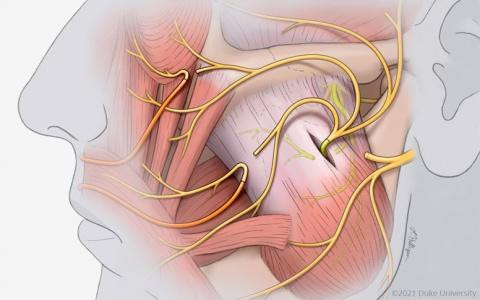
People connect to the world by their facial expressions. The ability to express emotions through a smile is a uniquely human response that evolved to enhance social interaction and connectedness. A smile can show a myriad of emotions from happiness to love that bond friends, family, and even strangers together.
Individuals who experience facial paralysis have difficulty expressing their emotions through their face because they are unable to move their mouth, eyelids, or forehead due to congenital conditions or acquired causes, including cancer, trauma, and infectious disease.
The facial paralysis program at Duke works to repair facial paralysis using a number of different treatments.